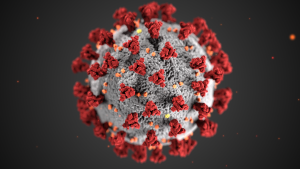
Many of the International Training and Education Center for Health (I-TECH) country offices have received supplemental funding from the U.S. Centers for Disease Control and Prevention (CDC) or pivoted portions of current CDC funding to implement and support activities related to the global COVID-19 response, such as contact tracing efforts, provider education, vaccine preparedness, and infection prevention and control (IPC).
To date, I-TECH has received over $500,000 of new funding for IPC of COVID-19 in Kenya and Malawi, while several other offices have submitted proposals for additional funding.
CDC has also redirected $83,000 of I-TECH Tanzania’s funding to support training on COVID-19 case investigation and contact tracing teams specifically for field epidemiology and training program graduates and community health care workers.
“The funding and support that we have received from CDC will allow us to apply our decades of implementation knowledge and expertise from combating the HIV epidemic to the current global COVID-19 response,” says Ivonne Butler, MPH, Associate Center Director for I-TECH. “We look forward to working with other implementing partners and local ministries of health to provide comprehensive training, technical assistance, and learn from one another to effectively respond to this evolving pandemic.”
In addition to new funding and funding shifts, I-TECH has been invited by local governments and ministries of health to collaborate in their COVID-19 responses. So far, I-TECH has aided in the creation of standard operating procedures, contributed to public pandemic preparedness materials, and supported hospitals with COVID-19 IPC. Leveraging existing processes and programs — such as warm lines and distance learning platforms — has allowed I-TECH to rapidly respond to the emerging needs of health care workers and providers.
The newly established independent local Zimbabwe office, Zim-TTECH (Zimbabwe Technical Assistance, Training, and Education Center for Health), also received $579,000 for vaccine preparedness and disease prevention for the rapid scale-up and implementation of a SARS-CoV-2 vaccine (when available) as well as IPC triaging at 250 sites throughout the country.
Ensuring Continuity of HIV Care
I-TECH’s programs are now faced with the difficult task of ensuring the continuity of HIV care and treatment for people living with HIV (PLHIV) during the pandemic. Due to the COVID-19 pandemic, some countries are facing disruptions in antiretroviral therapy (ART) medication supply, an inability for PLHIV to pick up ART medication at pharmacies or hospitals, and a diverted focus from HIV testing due to lack of personal protective equipment and safety concerns.
“Our programs are committed to continuing to provide quality HIV care and treatment while maintaining a safe environment for those for staff and patients,” says Butler. “Our teams and programs have had to adapt and bring innovative delivery of uninterrupted HIV care and treatment services to people living with HIV. They have done an outstanding job in their rapid responses during this unprecedented time.”
Some examples of the innovative way teams are delivering HIV care during the COVID-19 pandemic is through text messaging as a way to reach PLHIV, coordinating community ART refill groups, educating and training providers via distance learning platforms, and using warm lines and WhatsApp to support providers.